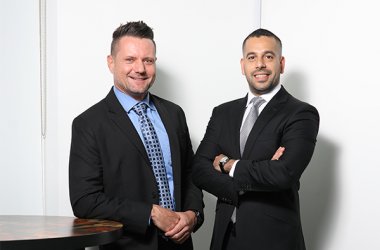
Hewlett-Packard reported a 2 % drop in revenue for the July quarter, which was better than expected, and said its business is stabilizing.
Net earnings for the quarter, the third of HP’s fiscal year, were US$1.6 billion, or $0.67 per share, down from $2.0 billion, or $0.80 per share, in the same quarter a year earlier, HP announced Tuesday.
The company’s purchase of services giant EDS last year again helped to prop up its results. Revenue from HP’s services business almost doubled thanks to the acquisition, to $8.5 billion, while sales of printers, servers and desktop PCs all declined sharply from a year earlier, HP said.
Overall revenue came in at $27.5 billion, better than the $27.3 billion financial analysts had been expecting, according to Thomson Reuters. The net profit before restructuring costs and other one-time items was $0.91 per share, a penny better than the analyst forecast.
"HP’s performance this quarter is a result of our strong business portfolio, efficient cost structure and scale," Chairman and CEO Mark Hurd said in a prepared statement. "Business is stabilizing, and we are confident that HP will be an early beneficiary of an economic turnaround and will continue to outperform when conditions improve."
Revenue from HP’s Personal Systems Group, which sells desktop and laptop PCs, declined 18 % from a year ago, to $8.4 billion, though unit shipments increased by 2 %, HP said. Revenue declined 10 % from laptops and 26 % from desktops, and average selling prices dropped, executives said on a conference call.
The printing and imaging group reported a 20 % drop in revenue, to $5.7 billion, while HP’s Enterprise Storage and Servers division saw revenue decline 23 %, to $3.7 billion. Software revenue declined 22 % to $847 million, while revenue from financial services slipped 1 % to $670 million, HP said.
The number of printers HP sold in the quarter dropped by 23 %. The company underestimated the demand for laser printers, and some models will be in short supply through the end of HP’s fiscal year, Hurd said during a conference call.
The task of integrating EDS into HP is going well, he said. HP completed its acquisition of EDS a year ago this month, for $13.9 billion. So far, HP has cut 16,000 of the 25,000 jobs that it said it would eliminate as a result of the merger, Hurd said.
Other large tech companies, including IBM, Cisco Systems, Microsoft and Intel, have all reported declining revenue for the last quarter, as businesses kept a tight rein on spending and conserved cash.
Like HP, however, several companies have said demand may be picking up, and there have been positive signs even for the beleaguered PC market. Intel said last month that conditions in the PC market were improving and predicted a stronger second half, while Dell said that demand was stabilising.
Cisco, SAP and IBM, which all depend heavily on large enterprises for their business, have given encouraging outlooks for the rest of the year, although as Cisco CEO John Chambers said two weeks ago, it will take several more quarters to tell if a recovery is underway.
"The quarter was solid for HP relative to our expectations going in," Hurd said on Tuesday’s conference call. "We’re encouraged by the stability that we’re beginning to see in the market, but we’re not at a point yet where we’re ready to call it a turn."
Business remains weak in Europe, he said, while Asia showed the most improvement from the second quarter, particularly China.
HP expects to report a profit of $1.12 per share for its fourth quarter, better than the analyst forecast of $1.07. The company reaffirmed its previous revenue and earnings guidance for the full year.
Sales of printers, PCs and servers all declined sharply, but HP’s services business was a bright spot





